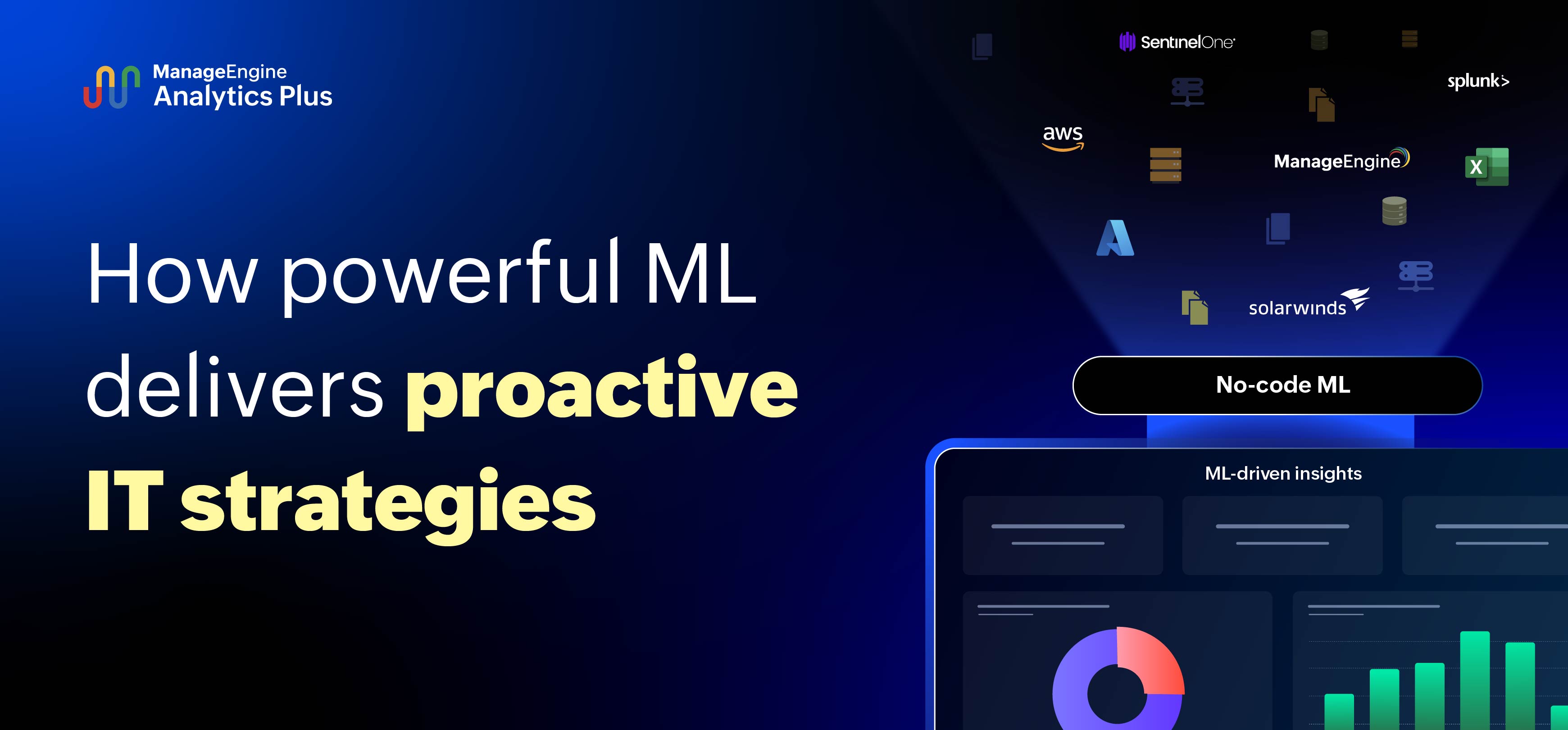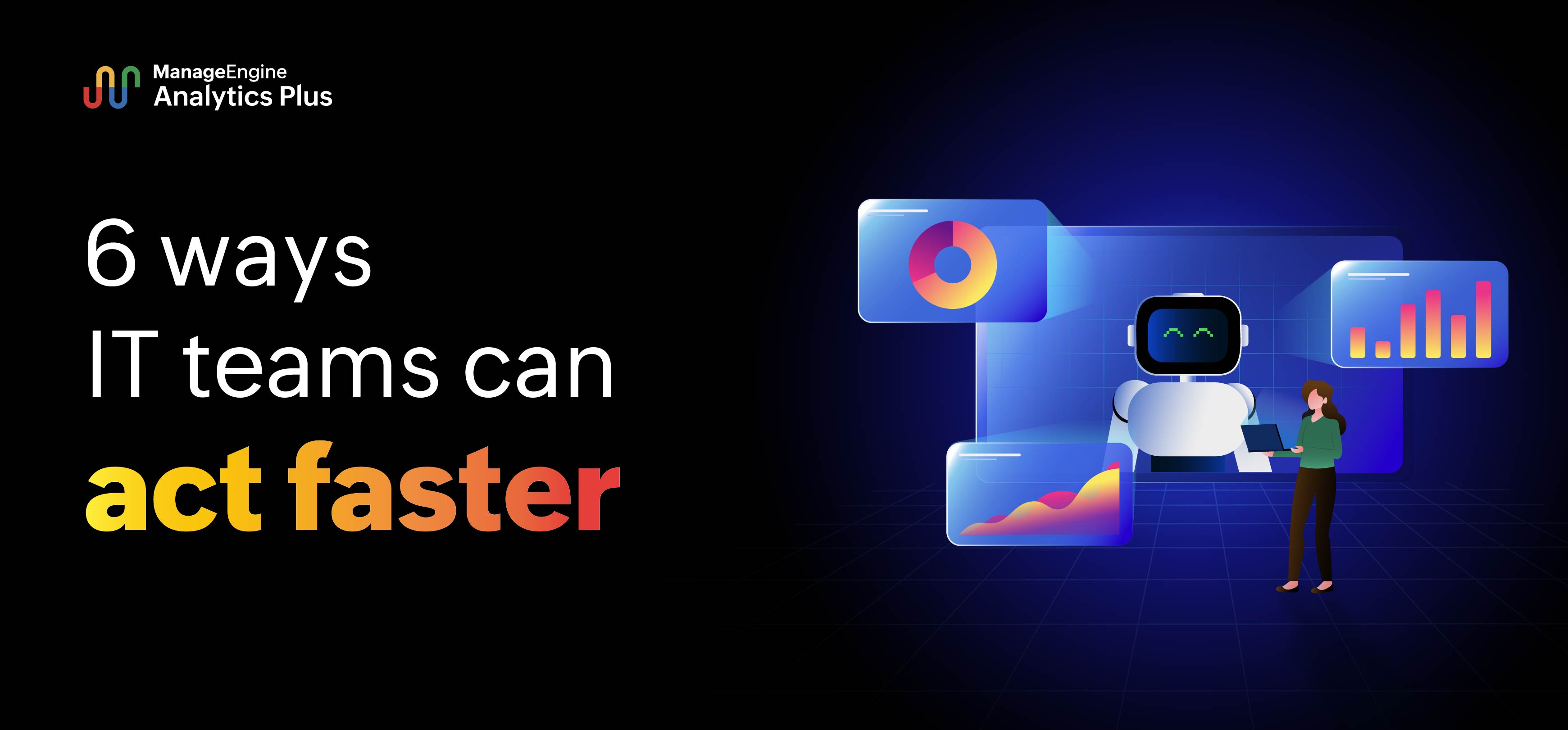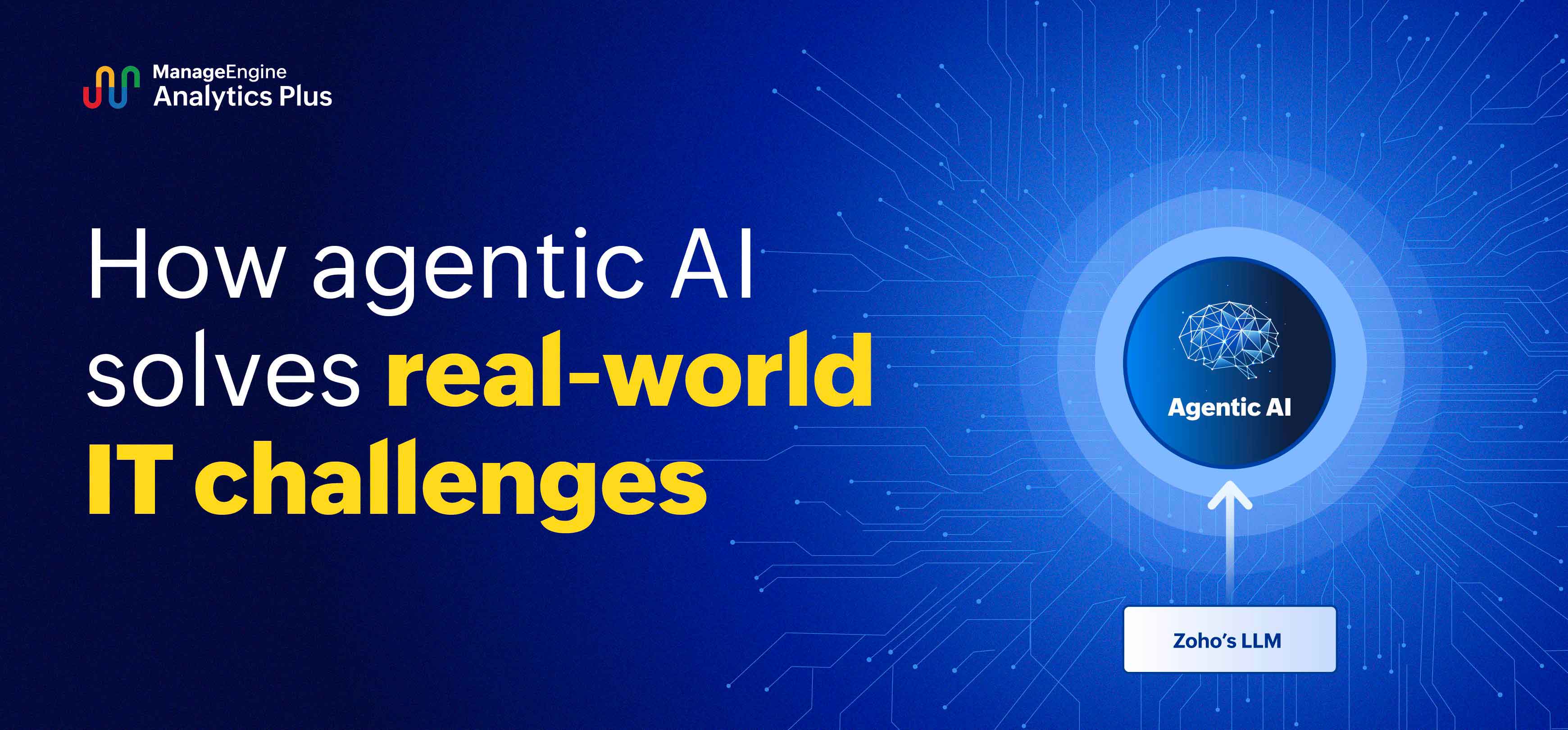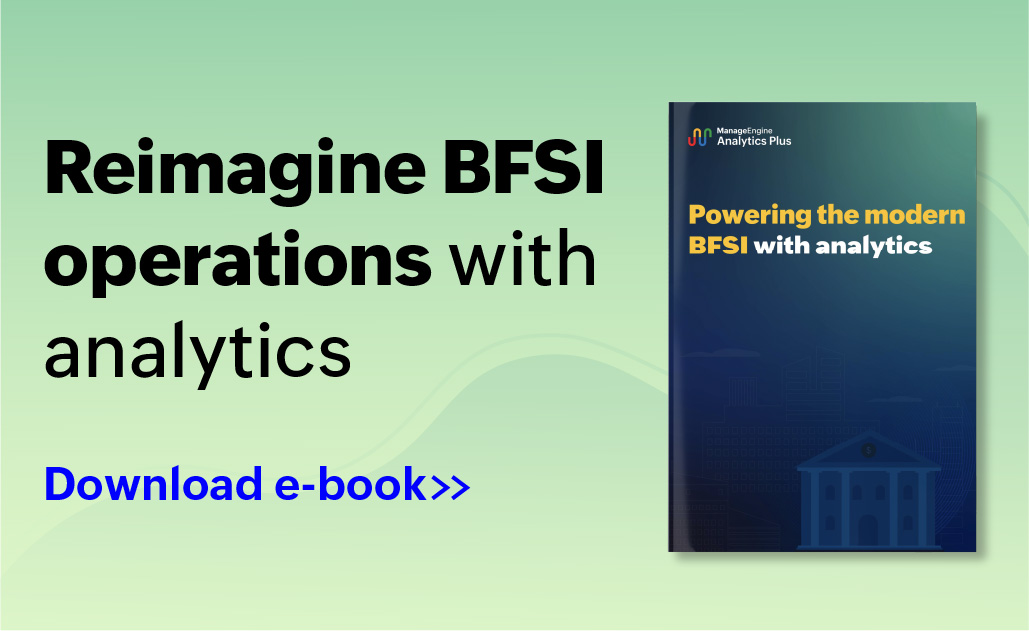- HOME
- ITOps Analytics
- Artificial intelligence: Reshaping the future of data analysis
Artificial intelligence: Reshaping the future of data analysis
- Last Updated: July 1, 2024
- 950 Views
- 4 Min Read
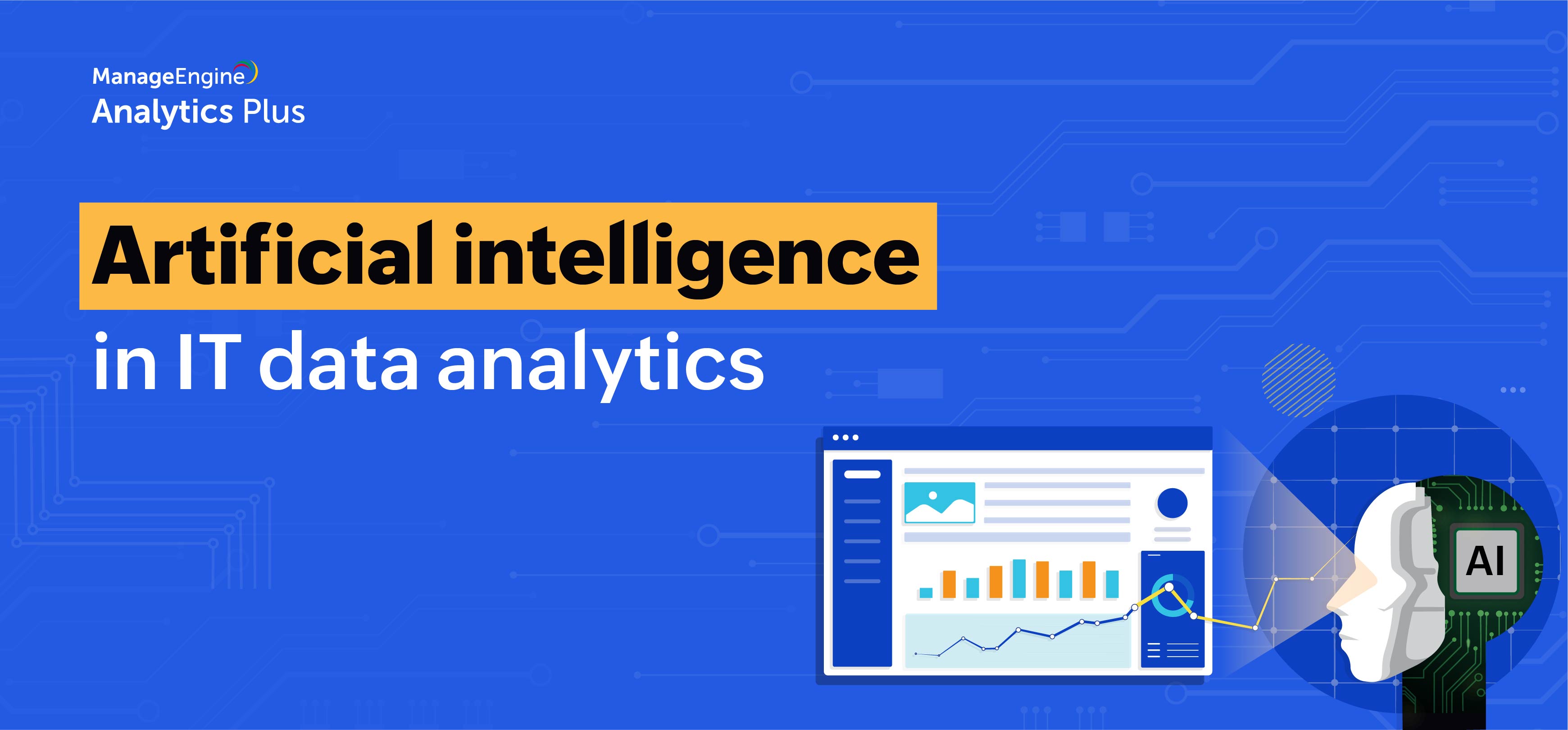
In the early 2000s, Excel was the go-to analytics tool. You could add, multiply, and divide using formulas, and for more complex functions like data blending, correlations, and comparisons, there was the VLOOKUP function. The data engines of today's analytics applications have limitless possibilities and can perform countless tasks using data, but with a lot of effort.
Thanks to the advent of artificial intelligence (AI), data analytics has become more accurate, powerful, efficient, and—most importantly—accessible to everyone in the organization. Data analytics is no longer exclusive to data scientists and analysts; it has cut through the organizational hierarchy to reach people of all ranks and departments.
As AI reshapes data analysis, it creates far-reaching benefits, such as delivering powerful insights and solving some of the toughest challenges. For instance, your portfolio advisor can use AI to analyze risks and create risk management models and strategies for a smarter return on investment. Your local mom-and-pop stores can analyze consumption patterns and preemptively stock their shelves to cater to changing buyer demands. That's not all! Be it logistics, marketing, sales, customer engagement, manufacturing, automobiles, food, or beverages, there's no industry that AI-driven analytics hasn't transformed.
What is AI analytics?
Data analysis is the process of mining actionable information from data. Data analysis is often considered a time-consuming, labor-intensive task. However, it can be automated with the introduction of AI, forming AI analytics. AI analyzes and monitors a substantial amount of unstructured data with the aid of natural language processing (NLP) and a few other machine learning (ML) models, enabling faster, easier data analysis.
How is AI used in analytics?
AI automates repetitive tasks and analyzes data by applying progressive learning algorithms to find structure and regularities in it. ML and NLP are the two main AI techniques applied to analytics. ML identifies patterns and trends from historical data and discovers relationships between data points. These identified patterns and trends are converted into unambiguous, human-readable insights using NLP.
What are the benefits of AI in analytics?
AI-driven analysis has revolutionized IT. It gets the most out of data by analyzing and drilling down to the specifics—a process that's known to be error-prone and complicated in human-led analytics. AI analytics enables threat detection and quickens root cause analysis of incidents, significantly increasing performance and reducing operational costs. AI empowers IT leaders with instant insights and foresight to improve decision-making.
How is AI-driven analytics different from traditional analytics?
Traditional analytics, also called human-led analytics, is often carried out by data scientists or data analysts, requiring substantial human effort and plenty of time. AI-driven analytics leverages ML to provide accurate insights within minutes.
Use cases for AI-driven analytics in IT
Efficient IT maintenance
It is essential to diagnose incidents in order to automate the required fixes without compromising IT operations. AI helps identify potential issues so you can prevent them with proactive maintenance or resolve them significantly faster, reducing the MTTR and expenditure.
Quick root cause analysis
AI-driven analytics effortlessly digs into vast volumes of data and maps out the correlations between incidents and their primary causes, enabling IT teams to work on solutions rather than spending time finding the root cause.
Faster threat detection
Monitoring a vast IT environment and ensuring 100% security for an organization's perimeter are tedious tasks. AI makes these processes simpler by automatically scanning objects, assets, devices, and networks and instantly analyzing all that data to identify threats and vulnerabilities.
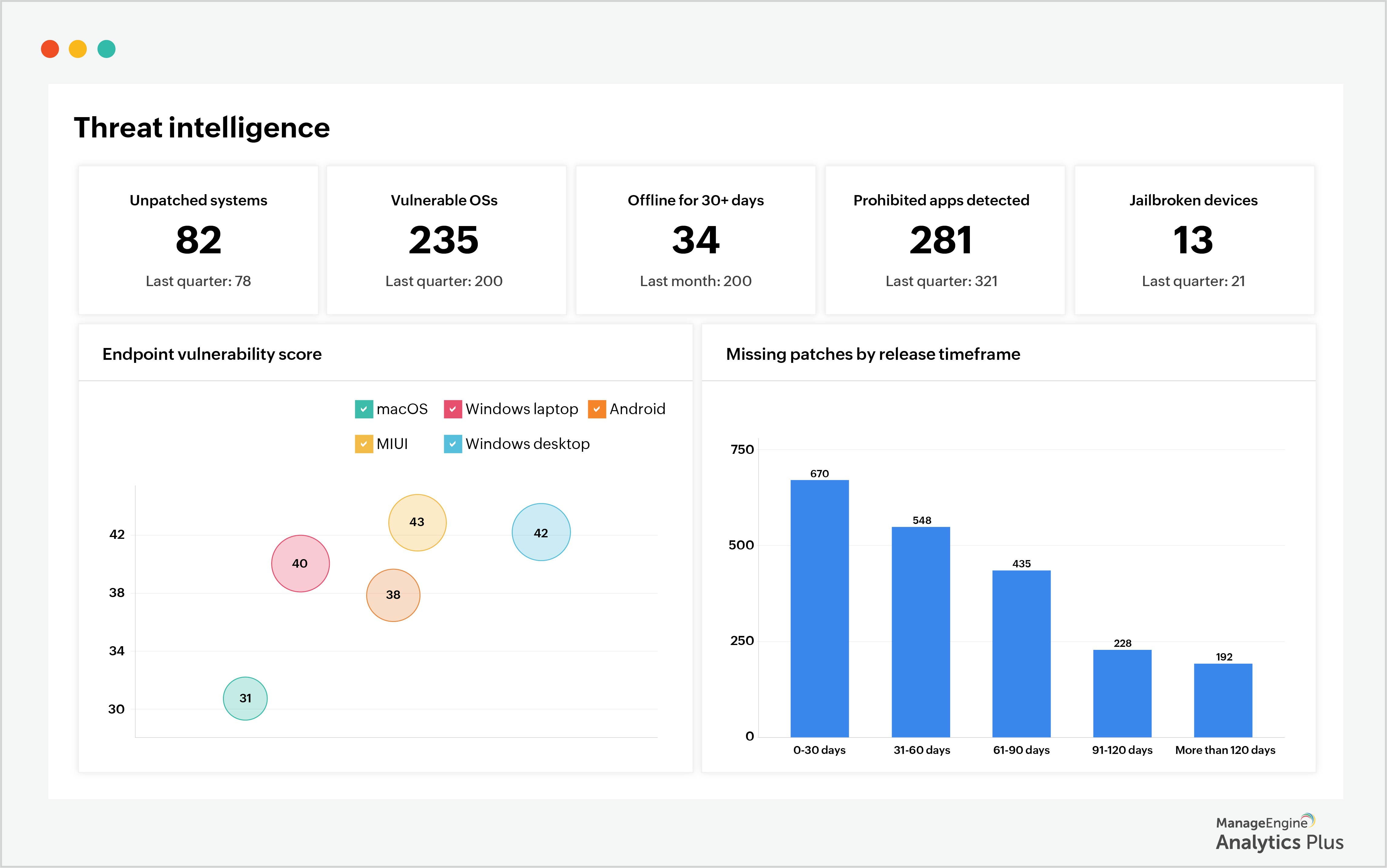
Forecasting the help desk workload
With predictive abilities, AI in analytics forecasts the volume of incoming tickets, which can be used to orchestrate resource allocation and ticket assignment.
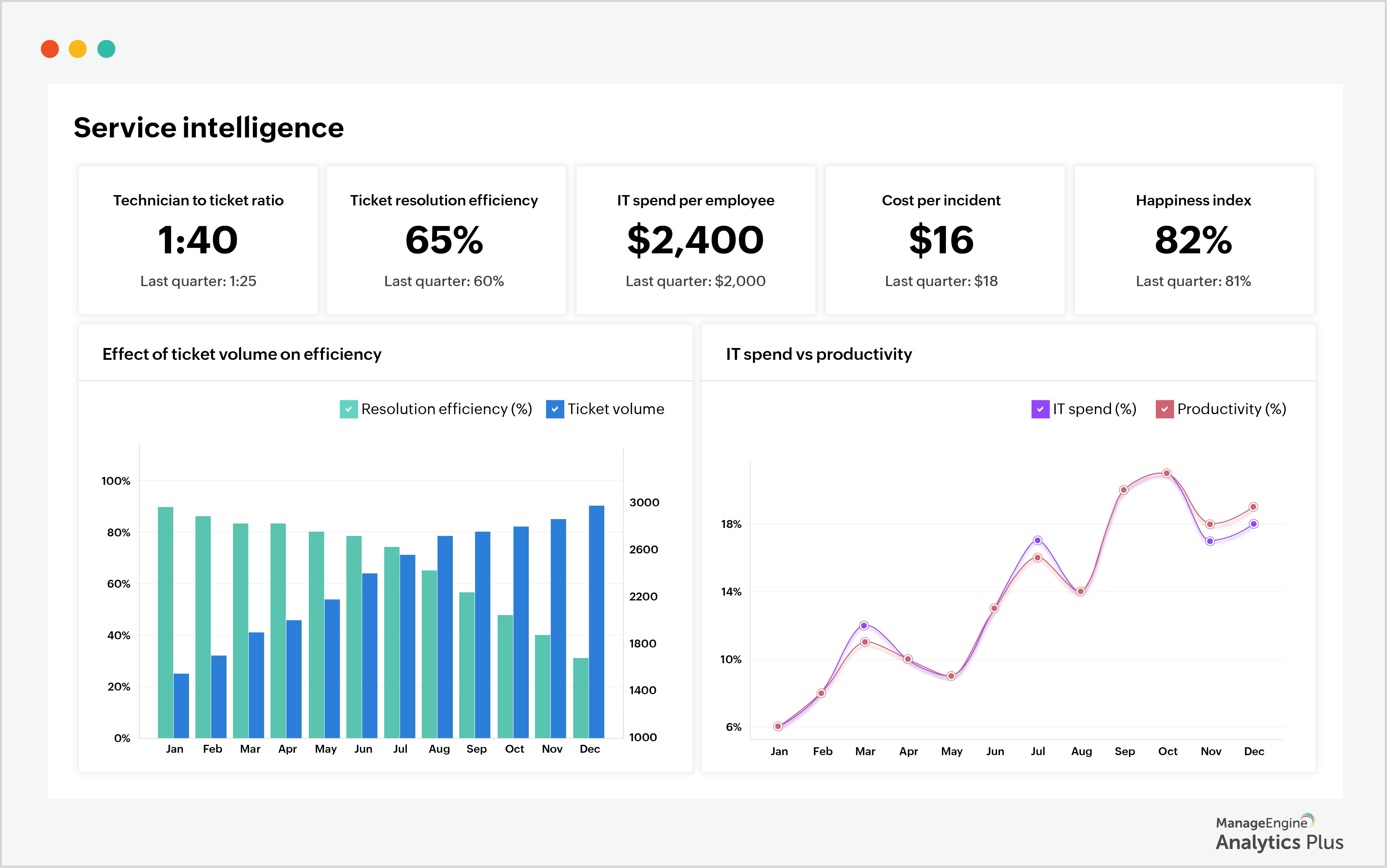
Automatic noise reduction
Typically, NOC teams spend a lot of time filtering through an ocean of alarms from multiple applications and tools. AI-led analytics can correlate alarms, triage events, and provide unified alarms for systems, networks, and devices, enabling technicians to focus on resolving the incident.
Financial management
Keeping track of IT finances has always been tricky. IT budgets are divided among multiple departments. When you add vendors, contractors, and solution providers to the mix, tracking finances and reporting IT spending might require the efforts of an entire team. AI-driven analytics can manage IT financial records better and ensure accuracy. This makes it possible to uncover actionable insights and create better IT budgeting strategies.
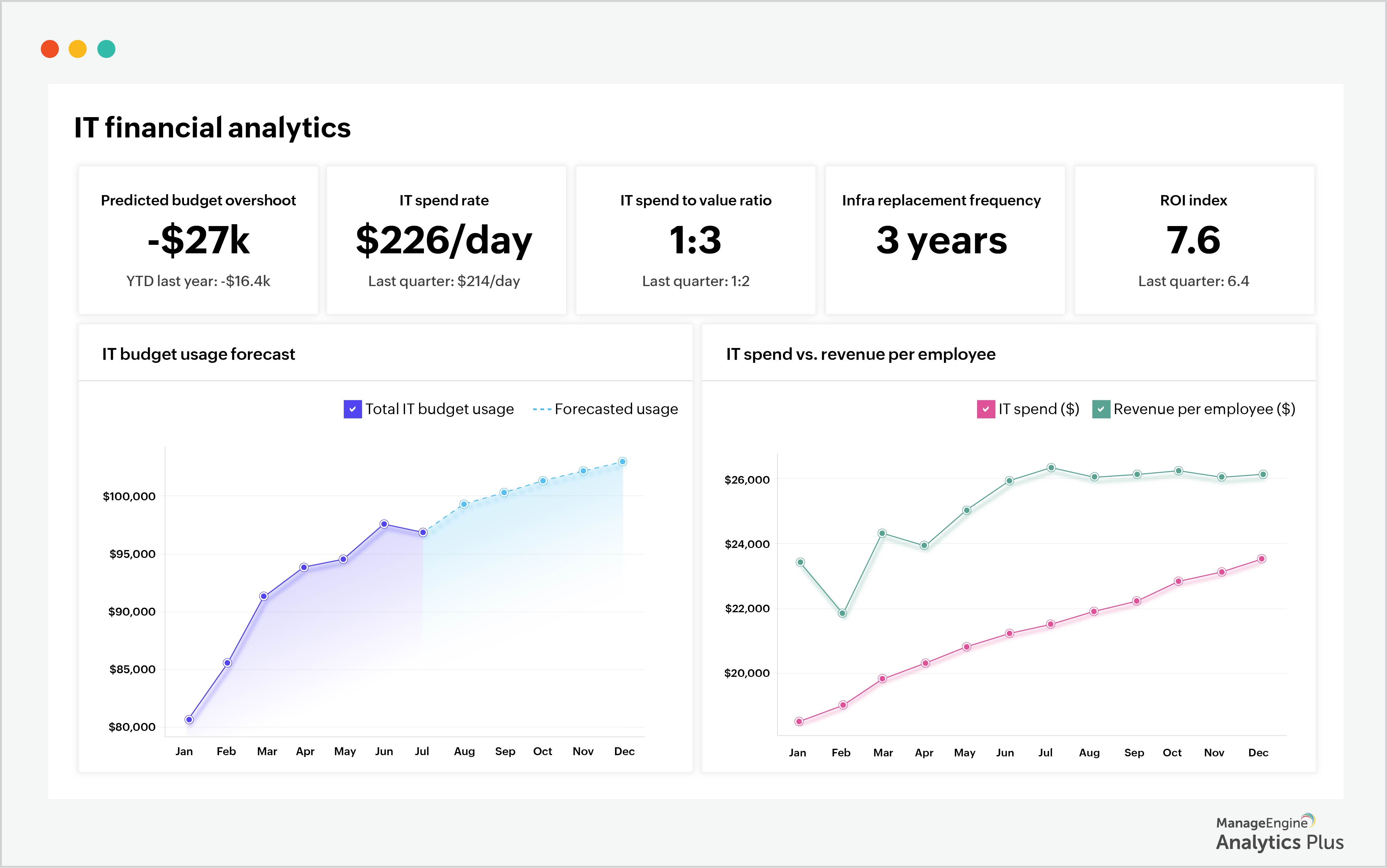
Enterprise management
AI speeds up customer service with better quality, reduced errors, and increased adherence to SLAs. Monitoring processes in organizations are improved with AI's ability to process data in real-time.
Project management
Prioritizing tickets when working in teams isn't an easy task. AI helps technician teams categorize critical tickets according to their priorities. It also enables them to make informed decisions about a project's duration, strategy, and cost by providing real-time data, status updates, and data visualization.
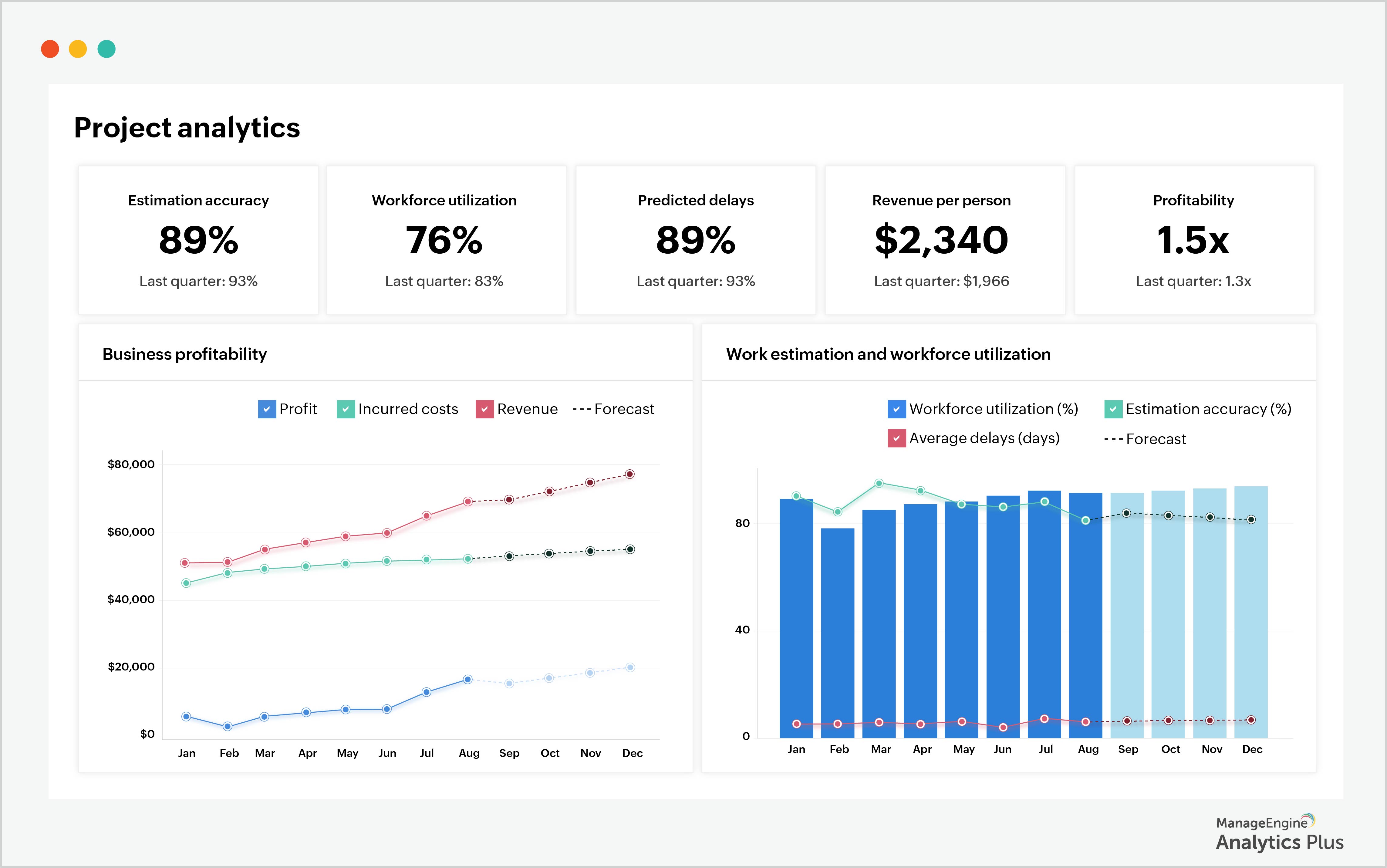
How can AI shape your analytics journey?
Now is the time for AI. Today, IT leaders consider AI analytics the ultimate solution that drives their IT operations to an advanced level in a cost-efficient, time-saving way by eliminating the slog of manual work. AI's ability to pull out insights buys more time for you to focus on implementing business-critical decisions.
If you're looking for an AI-enabled analytics tool that fits your organization's unique reporting needs, try ManageEngine Analytics Plus' AI assistant, Zia. Zia is a powerful analytics assistant that can uncover insights hiding in vast data lakes. Ask Zia to get immediate, accurate answers without needing to dig into your extensive data manually.
These reports were built using Analytics Plus, ManageEngine's AI-driven IT analytics solution. Try Analytics Plus for free today.

